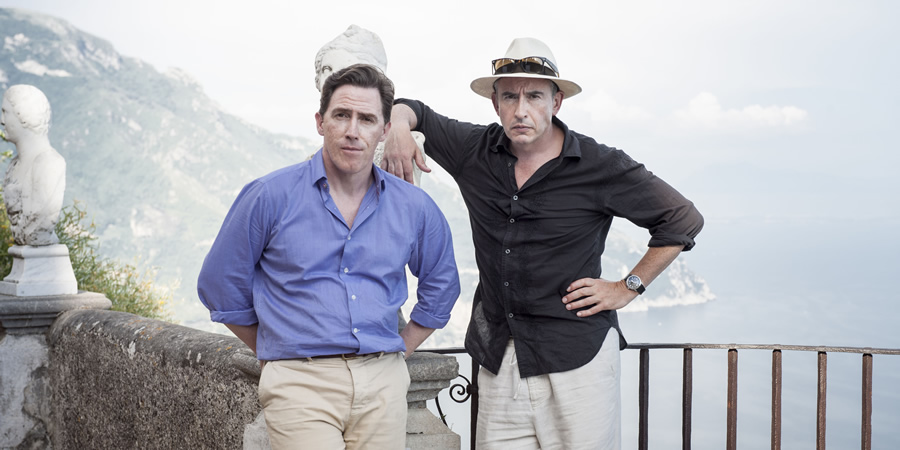JPM1
Thursday 25th November 2010 3:43pm
London
117 posts
Quote: Nat Wicks @ November 25 2010, 2:09 PM GMT
Oh no, I can see where this is leading!
You are right you have been absolutely polite. Doesn't make your line of questioning any less pushy though.
ANYWAY. I might as well throw my feelings into this now I've implicated myself.
Characters- as far as my feelings towards it go, the characters are well written. Well written (or created if we're being contentious)for me because as the 'story' progresses I am seeing more and more of their personalities/goals/aspirations/weaknesses come through, without the need for the need for clumbsy exposition.
For example, the moment with Coogan in the mirror doing the Brydon impression shows us his insecurities towards a man who he publicly suggests is 'lower' than him in the showbiz pecking order. This tells us a huge ammount about his inner workings without him saying it.
The characters are believable, and in this 'real world' context that is what they need to me. They are perfectly suited to the scenario they have been placed in. Also, you could argue that they are will written because they are constantly evolving whilst still remaining absolutely believable. The Coogan and Brydon we saw in the last episode are arguably quite different to the ones we see in the beginning of the first. Through every episode, the tension between them builds (eg when Coogan proclaimed that he couldn't name any of Brydon's work), and it is done in a way which feel natural and not forced.
In terms of the set-up (the actual trip itself), I would argue that this isn't the main narrative, but is only a vehicle for the characters to come through. For me it's not a story about restaurant reviews, but about the relationship of the men. By choosing this setup, they have forced the characters into an extreme situation where they are constantly together. The physical setup of the two person table forces them to converse. The fact that they know nothing about food is probably important too, as two keen foodies would gab on about the food. Because they don't, it frees them up to take the conversation where they like.
Can't remember what your other questions are, but there's my two cents!
I must add that I am not a sitcom writer, so these feelings are purely from a viewer's POV.
Nat, to your points....
I'm confused where you see character development. What do you know about Coogan's character in teh fourth episode that you didn't know in the first?
Your example of the mirror moment is interesting not for the actual content but for what you get out of it. I think that's a very interesting reading of that scene but to be honest I think that comes from you, not from the show. That is to say I think you've approached it generously, adding your ideas to theirs, not that they actually intended to communicate that.
You talk about the characters being forced into this scenario but they weren't Brydon agreed to go voluntarily and continues to go with Coogan despite Coogan's rude attitude toward him. Why does Brydon take it? That's his character? ok, then we have the issue of passive characters to which things happen, but from which nothing comes...
if it's not a story about restaurant reviews then why is it in their at all? Setting is important - it shouldn't be accidental.onsider the setting in Grandma's house - a show named after it's title. Those characters and those dynamics can only happen there - the place is crucial to the forward movement of the events.
 Didn't mean to ignore you!
Didn't mean to ignore you!

